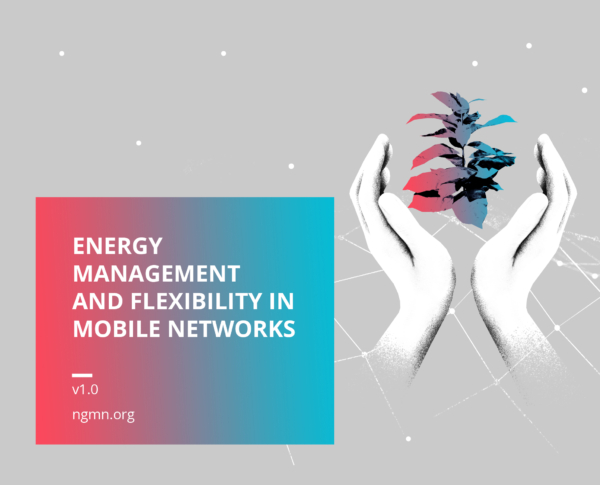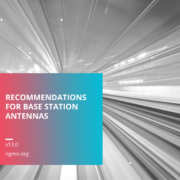
NGMN provides green initiative boost with new energy management guidance
Mobile Network Operators (MNOs) can more easily adopt energy management strategies that lower costs, cut emissions, and unlock new revenue streams thanks to industry-first guidance from the Next Generation Mobile Networks Alliance (NGMN).
The new guidance outlines how MNOs can benefit from deploying local renewables and batteries at cell sites for their own energy generation – becoming virtual power plants – and sell energy back to energy companies to help better manage operational costs and navigate limited energy resources.
“As the shift towards green energy accelerates, energy management is becoming a core focus for MNOs and the wider mobile industry as we look to reduce our energy footprint and improve the planning and management of our limited energy resources,” said Chairman of the NGMN Alliance Board and Orange Group CTO and EVP Networks Laurent Leboucher. “NGMN’s guidance provides operators with a toolkit of options they can apply in order to manage this transition effectively.“
The publication ‘Energy Management and Flexibility in Mobile Networks’ explores energy management at both the cell site and network levels, highlighting the technical and operational process changes MNOs are required to embrace to support the energy transitions of national grids. It outlines the key challenges – from local wind and solar capabilities, grid connections, tariffs and batteries requirements – that MNOs need to manage when integrating renewables into their networks to achieve their respective sustainability goals, such as reducing emissions, cost, or grid-balancing targets.
The guidance also urges MNOs to consider how advanced their countries’ grids are in integrating variable renewable energy (VRE), such as wind and solar. For example, in countries where VRE is already well established, it may not be beneficial for operators to invest heavily in building their own renewable energy sources.
“The transition to the green economy provides unique opportunities for mobile operators and the industry at large to play a wider role in enabling and supporting change at the national level,” said NGMN Board Director and Vodafone Head of Group R&D Luke Ibbetson. “For example, not only can MNOs benefit from deploying local renewables and batteries at cell sites, depending on national legislation, but they can also use those assets to offer new services to energy companies in the form of balancing the grid. As the grid becomes more dependent on variable and intermittent energy sources, enabling grid flexibility becomes increasingly important,” he added.
The publication aims to help operators identify key considerations when making a choice on energy strategy so that the right balance between sustainability goals, investments, and energy cost stabilisation can be achieved.
“Our publication ‘Energy Management and Flexibility in Mobile Networks’ is the latest guidance from NGMN’s Green Future Networks Programme, moving the discussion forward from energy efficiency and energy saving in mobile networks towards energy management,” said NGMN CEO Anita Doehler. “Since 2021, our members have worked collaboratively to provide essential guidance that helps the mobile industry reduce its emissions and environmental footprint, and we will continue providing actionable guidance as part of our Green Future Networks Programme. I strongly encourage all industry stakeholders to implement these latest recommendations depending on their specific circumstances and local legislation and joining NGMN to help drive forward this vital work together with fellow decision-makers,” continued Doehler.
The new publication can be downloaded here.
Further information and all NGMN publications can be found on the website at ngmn.org.

